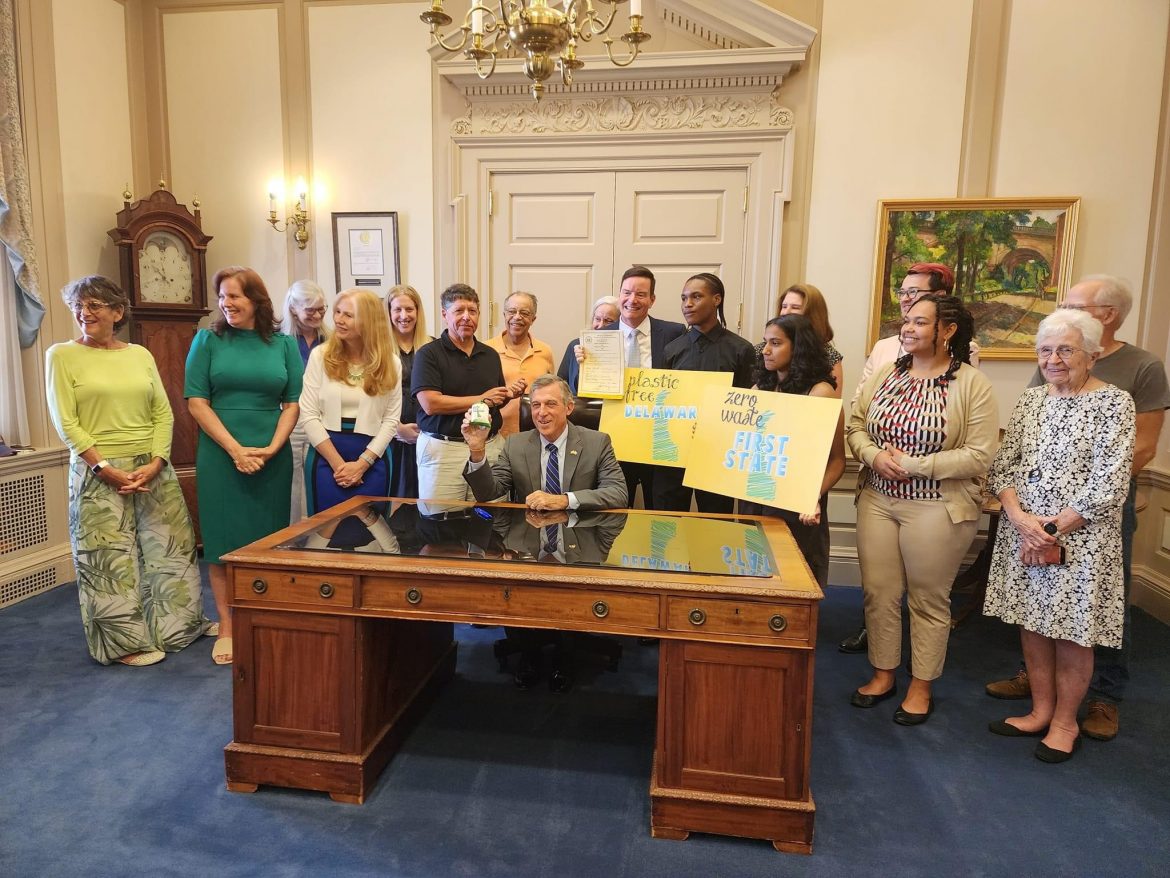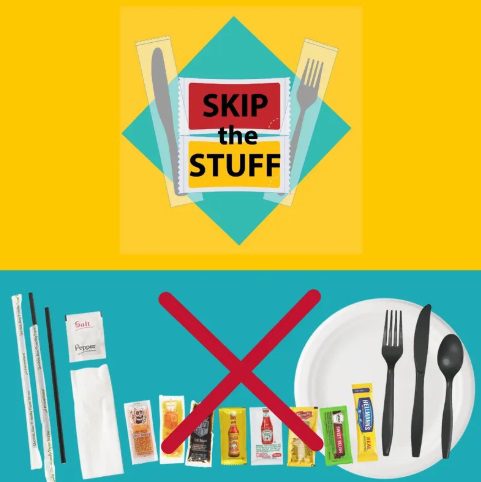By Robin Glazer, Environmental Advocate
How does a bill become law? Check out Schoolhouse Rock’s (almost) timeless clip from 1976!
The process for making laws is almost identical at the federal and state levels: two chambers debate the content of the bill before the chief executive (President, Governor, etc.) vetoes the bill or signs it into law. Here’s how laws are made in Delaware’s state capital, Dover.

The first of the 153rd Delaware General Assembly’s two legislative sessions ends June 30. Pending bills build on other recent environmental protections such as the 2022 plastic bag ban (2021 House Bill 212), the prohibition of polystyrene foam food containers (2024 Senate Bill 51), and the Energy Solutions Act (Senate Bill 265, 2024).
- The “Skip the Stuff Act” (House Bill 111) would allow restaurants and food-service businesses to provide single-use items such as utensils, condiment packets, and napkins only upon customer request beginning January 1, 2026.
- Retail and Wholesale Prohibition of Polystyrene (Senate Bill 130) would restrict the sale of expanded polystyrene (EPS, or plastic foam) products such as coolers and packing peanuts. EPS is not possible to recycle curbside, so EPS products typically end up in landfill. They can take hundreds of years to decompose, but only into harmful microplastics.
Act to Amend Title 26 Delaware Code Relating to Public Utilities (Senate Bill 159) will require permit approvals for electric substations as long as it supports renewable energy projects of at least 250 megawatts. This would allow the state to move Delaware towards greater energy independence, whereas currently most of our energy is from neighboring states’ fossil fuels. The state would be able to approve the project permit even if Sussex County rejects the application.
This blog is from DelNature’s “How to Advocate” series. Check out past topic, how to contact legislators, and come back for more ways to advocate for what’s important to you.
